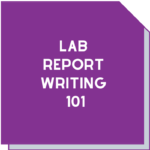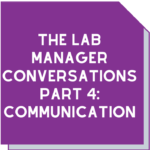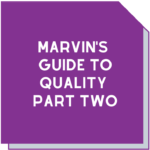Retiring? Re-selling? Read these tips first!
written by Maree Stuart
 It happens to everyone eventually. That’s right, the ‘R’ word … Retirement.
It happens to everyone eventually. That’s right, the ‘R’ word … Retirement.
If you’re lucky enough to be the owner of your lab the possibility of lazing somewhere unencumbered by the worries of cash flows, BAS, HR management and the like is a great dream.
But if you’re looking to sell your business, it will take some planning for this to work out successfully.
How could this affect your accreditation?
If you have a NATA accredited lab, there are some things that need to be considered simply because you hold NATA accreditation.
The buyer might want to understand how well the lab has performed in recent assessments. Due diligence activities would mean they won’t take your word for it.
There are also some considerations that NATA will have with respect to the new owners. It may be best to let them know about these things during the process of sale of the lab business. This is particularly the case where the lab business is transferred to a new legal entity.
NATA will want to see some evidence about the new owners and the structure of the new entity. It may be possible for a simple transfer of accreditation to be completed.
Depending on the changes that are occurring, NATA may require a new accreditation is set up and perhaps an on-site visit.
The legal stuff
The NATA accreditation side is in addition to the legal process of sale of a lab business.
You might take on the sale as a DIY project to save money and decide that you don’t need lawyers involved. After all, you’re good friends with the buyer and what could possibly go wrong? The costs of engaging a good lawyer are not as much as you might think. Plus it can save you a lot of time, energy, and angst.
If you are the seller, the contract for the sale of the business is typically prepared by your lawyer once a purchaser has been found. The initial agreement is then sent to the purchaser’s lawyer. Amendments are made to the agreement after negotiation between the parties.
The vendor’s lawyer will work through several aspects to develop the contract for sale of the business. Some of these aspects are outlined below.
The sale inclusions
 Apart from knowing the purchase price, they will want to know details of equipment, including those ‘little’ things like computers, mobile phones, and lab and office furniture. Your equipment list or asset register will help with this process.
Apart from knowing the purchase price, they will want to know details of equipment, including those ‘little’ things like computers, mobile phones, and lab and office furniture. Your equipment list or asset register will help with this process.
They will also want to know about fittings and fixtures in any business premises in which the lab operates. This includes whether the premises are leased or owned by the lab business and if there is a mortgage over the property for premises that are owned by the lab.
It’s common for lab equipment to be leased. Your lawyer isn’t being nosy! They need to investigate if there are any security interests or encumbrances over the equipment. They may ask you questions about this.
It’s also normal for there to be some requirements for restraints on the previous owner (you) and what things you can be involved in after the sale. This is so that the goodwill of the business being bought by the purchaser is maintained.
How up to date are you?
We’ve written previously about the need to keep on top of changes in technology. And as part of the negotiations, the purchaser may want to understand the technology you have in the lab. Is the technology up to date or does it come out of the stone age?
It might be a good idea to have a non-disclosure agreement or ‘agreement to negotiate in good faith’ in place to secure the value you have built in the lab.
Once you have signed the contract, there are certain obligations on the seller. This includes the need to conduct the business in a normal manner and not do anything that might adversely affect the value of the lab business. So, letting your systems go wild and unkempt is not something you should plan on doing!
Keep it seamless
Even though there will be changes, you’ll want to reassure your clients and staff that it will be ‘business as usual’. This makes good business sense and provides clarity to loyal clients.
Let them know if there will be a transition period. If you know that there will be changes to key contacts in the business after the sale, tell the people affected by these changes.
Send direct communication to clients by email rather than just making an announcement on your website or on social media. And make sure your staff are also updated on the relevant details. It’s important that both your clients and staff are kept in the loop and not caught by surprise.
That’s a lot to process!
If you’re thinking about selling or want to put some plans in place for the future, our friends at Lab Law can help. They are legal experts who get science and know business. You might have to explain something multiple times to other lawyers. But you won’t need to go through that pain with Lab Law. They have lots of experience working in and with lab businesses and NATA. Why not get in touch if you are thinking about planning for the future?
And if you need help with your business right now, or talking to NATA about changes to your accreditation, we’re always here for you! Contact Maree (0411 540 709) or Diane (0402 012 781) or send us an email at info@masmanagementsystems.com.au and let’s talk about how we can help.
Remember, you don’t have to do this alone!
Download the article Retiring? Reselling? Read this first!





